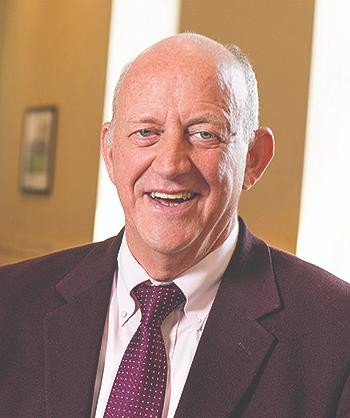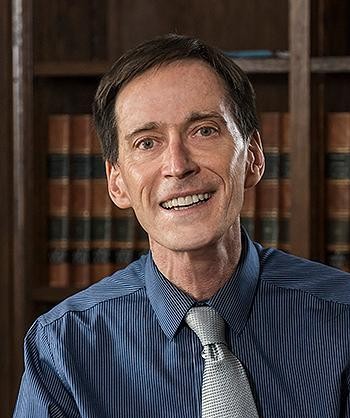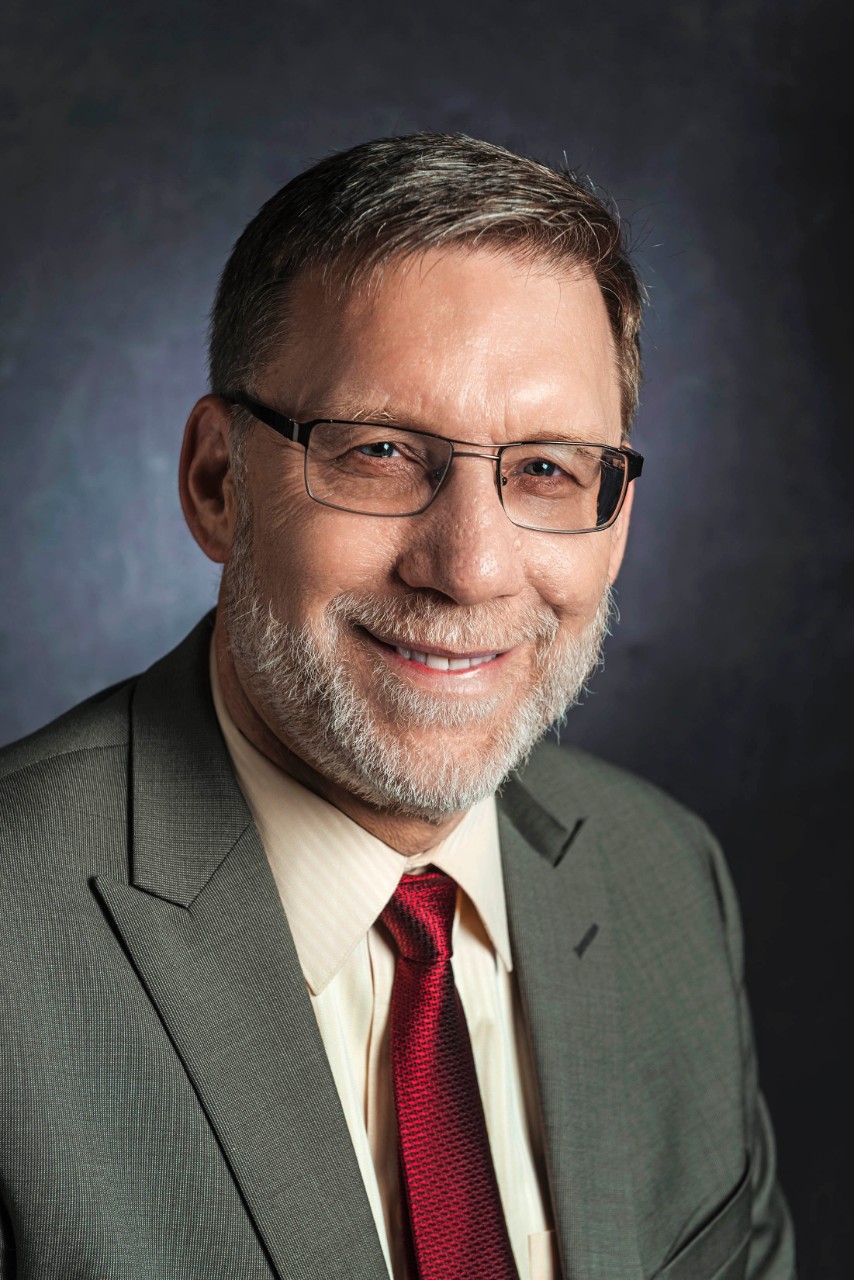The Boston College Seminar on a Contemporary Theology of Priesthood and Ministry, which a year ago issued a document, “To Serve the People of God,” calling for a renewed formation for and practice of lay and ordained ministries, held a conference earlier this month to move forward the implementation of the document.
The seminar invited select episcopal leaders, seminary rectors and board members, a U.S. Catholic Conference of Bishops consultant, lay ecclesial ministers, and theologians to the conference, which was held January 2-3 at the Connors Center in Dover. The conference began with a welcoming Mass with Boston Archbishop Cardinal Sean O’Malley, O.F.M, Cap., presiding.

"Our conference was an amazing gathering with a profound level of honest and open conversation," said School of Theology and Ministry Professor Thomas Groome, a co-chair of the Seminar on Priesthood and Ministry for the Contemporary Church. (Tony Rinaldo)
After the conference, the group issued a formal communique stating its founding theological convictions and outlining 10 pastoral recommendations. “To meet the needs of the church for pastoral and sacramental ministry,” the group’s statement read in part, “we must creatively expand existing ecclesial ministries and explore new models for ordained ministry.”
Among the pastoral recommendations was that “seminarians be exposed regularly to the rich diversity of the people of God. Where possible, this broadening should occur in the classroom (where seminarians study alongside lay peers), among their instructors and formators (which should include lay women and men) and in multiple pastoral contexts where seminarians are called to collaborate with a range of other ecclesial ministers.”
The group also stated that “it is desirable that women be included at every stage of the formation process—as peers in class, as teachers and formators, and as collaborators in ministry.”
The communique pointed out that “all consideration of priesthood and ministry must flow from the Second Vatican Council’s affirmation of the church’s living tradition as it has been received and developed by Pope Francis.”
Read the official communique and list of all conference participants here.

STM Professor Rev. Richard Lennan, a co-chair of the Seminar on Priesthood and Ministry for the Contemporary Church. (Lee Pellegrini)
The episcopal leaders participating in the discussions were: Cardinal Reinhard Marx, archbishop of Munich and Freising, Germany; Cardinal Joseph W. Tobin, archbishop of Newark; Cardinal Blase J. Cupich, archbishop of Chicago; John C. Wester, archbishop of Santa Fe; Edward Weisenburger, bishop of Tucson; John Eric Stowe, O.F.M., Conv., bishop of Lexington (Ky.); Robert McElroy, bishop of San Diego; Bishop Timothy Senior, rector of St. Charles Borromeo, Philadelphia; and Mark O’Connell, auxiliary bishop of Boston.
School of Theology and Ministry Dean Thomas D. Stegman, S.J. also participated along with Mark R. Francis, C.S.V., president of Catholic Theological Union in Chicago, rectors of seminaries from Houston, Chicago, and Baltimore, and more than a dozen theologians and others involved with church ministry.
“Our conference was an amazing gathering with a profound level of honest and open conversation,” said seminar co-chair School of Theology and Ministry Professor Thomas Groome. “It assembled eminent cardinals and bishops as well as people from the trenches, along with theologians and seminary rectors. From a very broad-ranging conversation, the communique it issued captures only some of the high points; I’m hopeful that the conversation will continue to unfold.”

Joseph Professor of Catholic Systematic Theology Richard Gaillardetz, a co-chair of the Seminar on Priesthood and Ministry for the Contemporary Church. (Gary Wayne Gilbert)
Three Boston College faculty members gave short presentations during the conference in their roles as session animators. Rev. Richard Lennan, a professor at STM and seminar co-chair, spoke on the interconnectedness of three ecosystems—the Trinity, the church, and ecclesial ministry—to help situate the priesthood.
“Vatican II’s recovery of the primacy of baptism reshaped the landscape of ministry—indeed, it did so beyond anything that the bishops at the council could have anticipated. The primary expression of this reshaping is the emergence of lay ecclesial ministers, who work alongside ordained priests to form disciples for mission,” he said.
Joseph Professor of Catholic Systematic Theology Richard Gaillardetz, another seminar co-chair, spoke on the theological presuppositions supporting “To Serve the People of God”’s profile of a well-formed priest. He cited a vision of a “more relational and ecclesial priesthood” and pointed to a future of priestly ministry that “manifests itself not as dominating power and privilege but now as a service to the people of God.”
Monsignor Liam Bergin, a professor of the practice in the Theology Department and a seminar member, shared his perspective as someone who spent more than 35 years living in seminaries. He cited “To Serve the People of God”’s encouragement of shared learning between candidates for diocesan priesthood and lay and religious candidates for ministry.
“Not only would this benefit the intellectual and pastoral programs that the seminary offers, but it would also offer verification and challenge to the human and spiritual formation of the candidates. A formation that is collaborative, inclusive, and open to the contemporary reality of cultural diversity is thereby facilitated.”
Other BC seminar members participating in the conference were: Boyd Taylor Coolman (Theology), Karen Kiefer (Church in 21st Century Center), Jacqueline Regan (School of Theology and Ministry) and graduate students Megan Hopkins, Emily Jendzejec, and Elyse Raby.
Kathleen Sullivan | University Communications | January 2020




